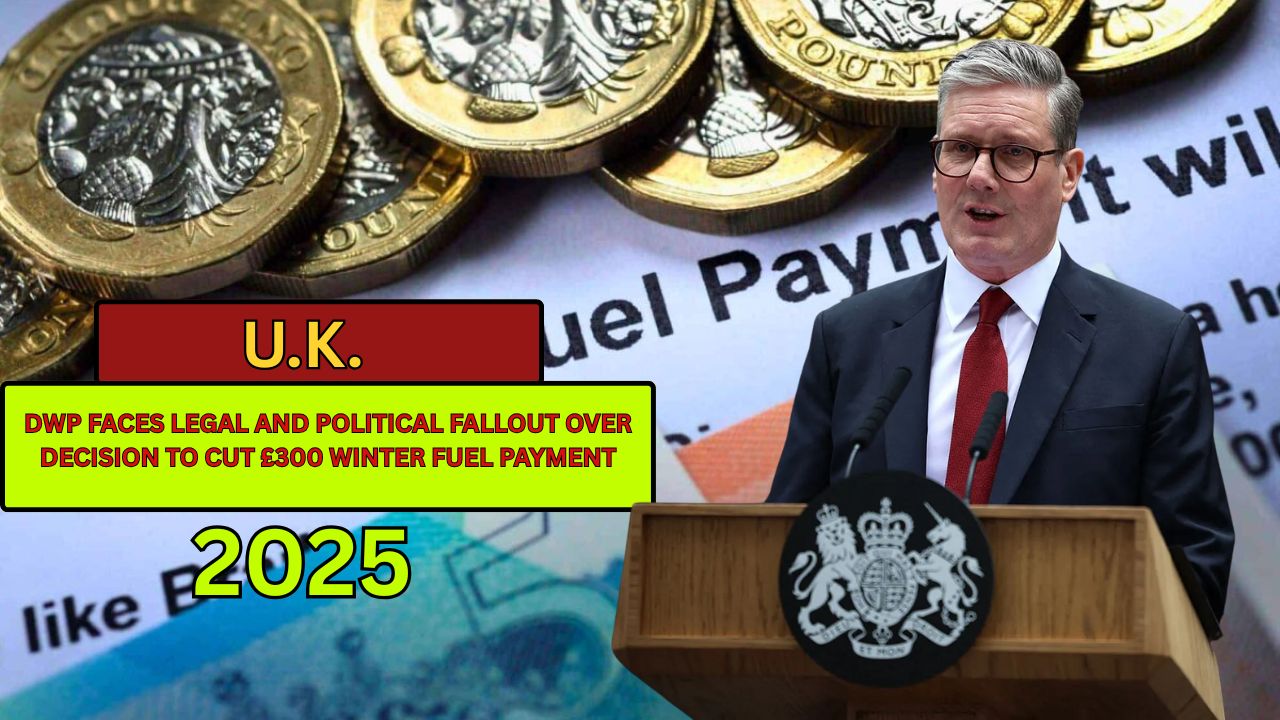A sweeping overhaul of the UK’s Winter Fuel Payment (WFP) programme has stirred controversy nationwide, as the Department for Work and Pensions (DWP) faces mounting political backlash, public criticism, and potential legal repercussions over the decision to cut the £300 top-up for millions of pensioners.
What Changed and Why
In mid-2024, Chancellor Rachel Reeves announced a major shift in the Winter Fuel Payment scheme, changing it from a universal benefit to a means-tested one starting in the winter of 2024/25. This meant that the additional £300 one-off pensioner cost of living top-up, introduced during the energy crisis, would only be available to those on low incomes—primarily recipients of Pension Credit and a select few other benefits.
The government framed the move as a necessary cost-cutting measure, aiming to save the public purse around £1.4 billion annually. The logic, according to the Treasury, was to better “target support” toward those who needed it most. However, this left around 10 million pensioners without the £300 boost they had received in previous years.
Public and Political Backlash
The announcement sparked immediate outrage from pensioners, charities, and political figures. Labour, the party in government at the time, faced heavy criticism from both within its ranks and the public, especially following local election losses such as the Runcorn and Helsby by-election, where the policy was cited as a key issue.
A YouGov poll showed declining approval ratings for both Prime Minister Keir Starmer and Chancellor Reeves after the WFP changes, highlighting the broad discontent, particularly among older voters—a critical demographic in UK elections.
Legal Challenges and Pressure
The backlash hasn’t just been political. Legal action has also been taken:
- In Scotland, a pensioner couple filed a legal challenge, arguing the government failed to properly consult the public or conduct an equality impact assessment before implementing the cuts. The case is scheduled for a January 2025 hearing.
- Unite the Union, one of the UK’s largest trade unions, initiated a judicial review, claiming that the policy disproportionately affects vulnerable pensioners and breaches equality laws.
As legal pressure builds, the DWP may be forced to revisit how the policy was introduced—even if not the substance of the policy itself.

Will There Be a U-Turn?
According to The Guardian and Financial Times, Downing Street is now reviewing the policy following internal party dissent and electoral fallout. While a full reversal of the WFP cuts is seen as unlikely, partial adjustments are reportedly under consideration.
One option being explored is raising the income threshold for eligibility, currently around £11,500, which could potentially allow a larger pool of pensioners to qualify for the payment again.
However, Treasury officials remain cautious, citing fiscal pressures and the desire to phase out temporary cost-of-living payments introduced during the energy price surge.
Scotland’s Alternative: A New Winter Heating Payment
In response to Westminster’s policy, the Scottish Government has unveiled plans to launch its own Pension Age Winter Heating Payment. This devolved benefit will provide at least £100 annually to all pensioners, regardless of income.
Unlike the revised DWP system, Scotland’s approach is universal, aimed at ensuring no pensioner is left behind in cold winter months. The Scottish plan is expected to roll out by late 2025, positioning itself as a direct counterpoint to the means-tested UK-wide policy.
What Pensioners Should Do Now
Pensioners concerned about eligibility can visit the UK Government’s Winter Fuel Payment page for the most current guidance.
Additionally, those on low incomes who believe they may qualify for Pension Credit, which would restore their Winter Fuel Payment entitlement, can check eligibility and apply via the official Pension Credit portal.
Pensioners in Scotland can follow updates about the new heating payment scheme through mygov.scot.
In Summary:
- The DWP has scrapped the £300 Winter Fuel Payment top-up for most pensioners, making it means-tested.
- The move triggered political backlash, legal action, and declining poll ratings for the government.
- A full reversal is unlikely, but revisions to income thresholds may be on the table.
- Scotland is developing its own universal winter heating payment to protect pensioners.
- Pensioners are advised to check if they qualify for Pension Credit to retain winter support.
This article has been carefully fact-checked by our editorial team to ensure accuracy and eliminate any misleading information. We are committed to maintaining the highest standards of integrity in our content.

Outside of work, he enjoys playing chess, following cricket, and writing short stories. His commitment to integrity and in-depth analysis strengthens OTE News’ mission of providing trustworthy journalism.




